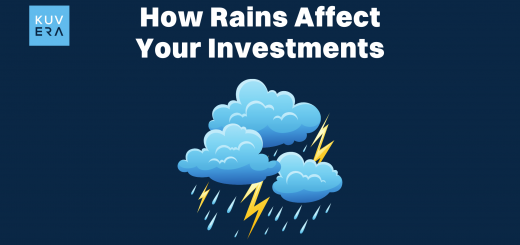Hey Gen Z!
You are navigating a world brimming with possibilities and challenges.
Is securing your financial future likely on your radar? Is it even if it feels a bit distant right now?
The truth is, there has never been a better time for you to start investing. Time is your greatest asset, and harnessing its power early can lead to significant wealth accumulation down the line. This guide will walk you through the best ways for you, as a Gen Zer, to embark on your investment journey, setting you up for a financially secure and thriving future.
Power of Compounding
You might be thinking, “I have plenty of time. Why rush into investing?”
The answer lies in the magic of compounding.
Compounding is essentially earning returns on your initial investment and then earning returns on those returns. Over time, this snowball effect can significantly amplify your wealth. The earlier you start, the more time your money has to grow exponentially. Even small amounts invested consistently now can blossom into substantial sums decades later. \
Therefore, you should not underestimate the power of time. It is your most valuable ally in the world of investing.
Furthermore, starting early can allow you to learn and adapt. The investment journey is not always a smooth ride. There will be market fluctuations and potential setbacks. You have the opportunity to gain experience, understand your risk appetite, and learn from any mistakes without significant financial consequences by starting early with smaller amounts. This early exposure can build financial literacy and confidence, setting you up for more significant investment decisions in the future.
Essential Steps Before You Invest
Before you dive headfirst into the world of stocks and bonds, it can be crucial to lay a solid financial foundation.
The following initial steps will ensure that your investment journey starts on the right foot:
Step 1: Understand Your Financial Situation
- Take a close look at your income, expenses, and any existing debt. Knowing where your money is going is the first step towards having money to invest.
- Create a budget to track your spending and identify areas where you can save. Even small adjustments can free up funds for investment.
Step 2: Set Clear Financial Goals
- What do you hope to achieve with your investments?
- Are you saving for a down payment on a house, a future car, retirement, or simply building long-term wealth?
Having clear financial goals will help you determine your investment timeline, risk tolerance, and the types of investments that are most suitable for you. Short-term goals might necessitate more conservative investments, while long-term goals can accommodate higher-growth potential investments.
Step 3: Build an Emergency Fund
- Before you start investing, ensure you have a readily accessible emergency fund that can cover at least three to six months of living expenses. This financial safety net can prevent you from having to sell your investments prematurely if unexpected expenses arise, such as medical bills or job loss.
- Keeping this fund in a high-yield savings account ensures easy access and modest growth.
Step 4: Pay Off High-Interest Debt
- If you have high-interest debt, such as credit card debt, you might want to pay it off before you begin investing.
- The interest you pay on this debt can often outweigh the potential returns you might earn on your initial investments.
Prioritising debt repayment will put you in a stronger financial position to start your investment journey.
Best Investment Avenues for Gen Z
Now that you have laid the groundwork, let us explore some of the best ways for Gen Z to start their investment journey:
Invest in Mutual Funds
For those who are new to investing or prefer a diversified approach, might find it easier to invest in mutual funds. Mutual funds pool money from multiple investors to invest in a diversified portfolio of stocks, bonds, or other assets. This diversification can help to reduce risk compared to investing in individual securities.
There are various types of mutual funds to choose from, catering to different risk appetites and investment goals. For Gen Z, who generally have a longer time horizon, equity mutual funds, which primarily invest in stocks, can offer higher growth potential over the long term. Within equity funds, you might want to explore categories like large-cap, mid-cap, small-cap, and sector-specific funds.
Index funds and Exchange Traded Funds (ETFs) can also be popular choices. This can especially apply to beginners. These passively managed funds aim to track the performance of a specific market index, such as the Nifty50 or SENSEX. They can typically have lower expense ratios compared to actively managed funds, making them a cost-effective way to gain broad market exposure.
Investing with Any Budget
One of the significant barriers to entry in the past was the high cost of individual stocks. However, many brokerage platforms now offer fractional shares, which allow you to buy a portion of a share. This means you can start investing in companies you believe in with as little as a few dollars, regardless of the stock’s full price. Fractional shares can democratise investing and make it accessible to individuals with limited capital, which is often the case for those just starting their careers in Gen Z.
Automated Investment Management
Robo-advisors are online platforms that use algorithms to build and manage your investment portfolio based on your financial goals, risk appetite, and time horizon. They can typically offer low fees and require minimal investment knowledge, making them an attractive option for beginners.
Robo-advisors can handle portfolio allocation, rebalancing, and even tax-loss harvesting in some cases, providing a hands-off approach to investing.
Investing in Yourself
While not a direct investment vehicle, continuously educating yourself about personal finance and investing is one of the best investments you can make. Understand the basics of different asset classes, investment strategies, and market dynamics. You can read books, follow reputable financial news sources, and consider taking online courses or workshops. The more you know, the better equipped you will be to make informed investment decisions throughout your life.
How to Avoid Common Pitfalls?
As you embark on your investment journey, you can be aware of common pitfalls that can derail your progress. These are as follows:
1. Investment Biases & Sentiments
Market fluctuations are inevitable. You need to be careful about making impulsive decisions based on short-term market noise or emotional reactions to price swings. It is important for you to stick to your long-term investment plan and avoid trying to time the market, which is notoriously difficult.
2. Ignoring Diversification
Diversification is key to managing risk. You should not concentrate your investments in a single stock or sector. It can help to spread your investments across different asset classes and industries to mitigate the impact of any single investment performing poorly. One can look for options like investing in mutual funds or ETFs as an easier way to achieve instant diversification.
3. Higher Fees Eroding Your Returns
You need to be mindful of the fees associated with your investments, such as expense ratios for mutual funds or trading commissions. High fees can significantly eat into your returns over time. You can opt for low-cost investment options whenever possible. When considering top mutual funds, always compare their expense ratios.
4. The “Get Rich Quick” Mentality
Building wealth through investing takes time and discipline. You need to be wary of schemes or investments that promise unrealistic returns in a short period. Investing is a marathon, not a sprint. Consistency and patience are crucial for long-term success.
5. Not Starting at All is the Biggest Mistake
Perhaps the biggest mistake you can make is not starting to invest at all. Even if you can only start with a small amount, the most important thing is to get started and let the power of compounding work its magic over time.
Identifying Top Mutual Funds for Your Portfolio
If you decide to invest in mutual funds that align with your investment strategy, identifying the top mutual funds requires careful consideration. While past performance is not a guarantee of future results, it can provide insights into a fund’s track record.
You can consider the following factors when evaluating top mutual funds:
- Expense Ratio: This is the annual fee charged by the fund to cover its operating expenses. Lower expense ratios are generally better as they eat less into your returns.
- Historical Performance: You can review the fund’s long-term performance relative to its benchmark and its peers. Look for consistent returns over various market cycles.
- Fund Manager Experience: The experience and tenure of the fund manager can be an important factor. A seasoned manager with a strong track record may inspire more confidence.
- Investment Objective and Strategy: You can ensure the fund’s investment objective and strategy align with your own financial goals and risk tolerance.
- Asset Allocation: How the fund allocates its assets across different securities?
Resources like financial websites, Kuvera blogs page, fund prospectuses, and financial advisors can help you research and identify potential top mutual funds that suit your individual needs.
Wrapping Up
Investing is a lifelong journey. There will be ups and downs, but the key is to stay the course, remain disciplined, and continue to learn and adapt. You can regularly review your portfolio, rebalance as needed, and adjust your investment strategy as your financial goals and circumstances evolve. Gen Z has the potential to build significant wealth and achieve long-term financial security by starting early, staying informed, and making consistent contributions. Your future self will thank you for taking those first steps today.
Interested in how we think about the markets?
Read more: Zen And The Art Of Investing
Watch here: Learn about the F&O craze in India












